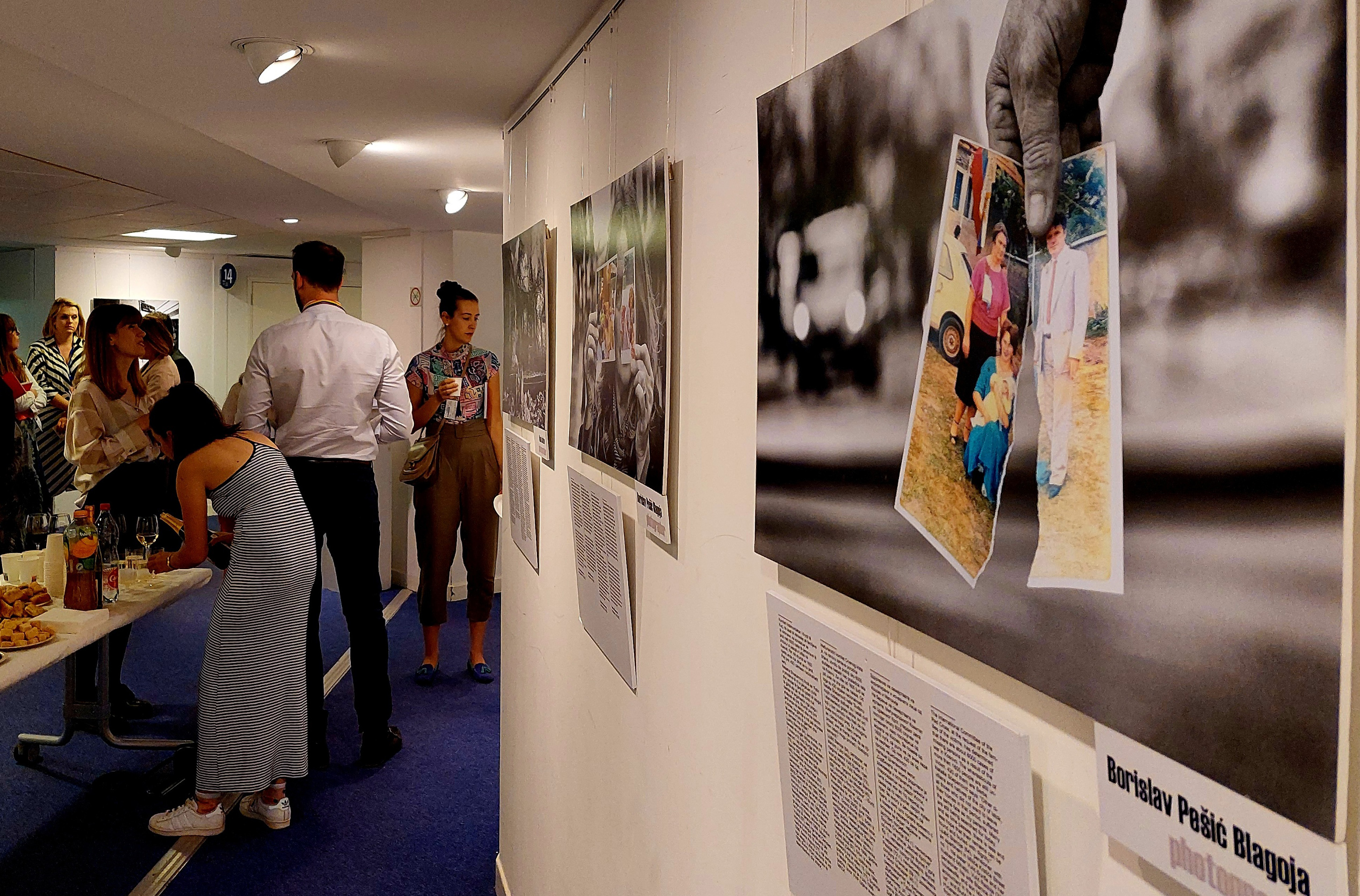The photography exhibition “All Our Tears” weaves together the stories of victims from the wars in the Western Balkan region in the 1990s. It consists of 34 original photographs, taken by four photographers in various locations in Kosovo, North Macedonia, and Serbia. The photographs feature artifacts such as family photos of missing persons as well as sites of atrocities, mass graves, and memorials, bringing into sharp focus the tragedy of war and its devastating consequences on the lives of victims.
The exhibition had its final opening at the gallery in the Council of Europe’s Palais de l’Europe, in Strasbourg, France, in June 2023. In 2022, it traveled through the region, with openings in Belgrade, Serbia; Prishtina, Kosovo; and Skopje, Macedonia.
The exhibition was part of “Strengthening Inclusive Victim Voices, Transforming Narratives,” a three-year project funded by the European Union (EU) that brought together civil society organizations and victims’ groups in Kosovo, North Macedonia, and Serbia, along with the international organizations ICTJ and PAX to develop meaningful, victim-led peacebuilding and reconciliation initiatives in the region. As part of the EU project, the organizations also developed a set of shared, victim-centered, and context-specific transitional justice principles that victims’ groups in the Western Balkans can use to guide their work at the national and regional levels.

Throughout the 1990s, as Yugoslavia broke apart, its territories became brutal battlegrounds and the sites of the most serious conflict and abuses in Europe since World War II. The abuses included widespread attacks against civilians, enforced disappearances, population expulsions, systematic rape, and the use of concentration camps. Between 1991 and 2000, more than 140,000 people were killed, and almost four million others were displaced. The issue of the missing continues to haunt the region: At the time hostilities ended, an estimated 35,000 people were unaccounted for, and many families are still waiting for answers regarding the fate of their loved ones.
“All Our Tears” shines a light on the experiences of the families of the missing and deceased as well as internally displaced persons in the region, and seeks to mobilize broader public support in their search for truth and justice. “This regional project exemplifies a remarkable collaboration among diverse groups, transcending borders and fostering unity in the pursuit of truth, justice, and healing for families affected by the wars in ex-Yugoslavia,” explained Teodora Zahirović, the public relations manager at Civic Initiatives, a Serbian civil society organization that participated in the project and helped organize the exhibition.
For more information on “All Our Tears,” including detailed photo captions, see the exhibition catalogue.















